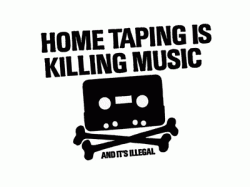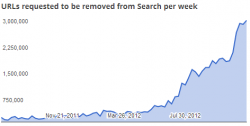Plenty to go through in this downer of a week, so let’s not waste any time …

Is it still going on? Apparently, yes. Viacom is still suing Google’s YouTube for copyright infringement, despite a 2010 court ruling throwing out the case via a summary judgement in favor of Google/YouTube. That decision was appealed, partially successfully, and the case was directed back to the lower courts. But once again, Judge Louis Stanton has ruled in favor of Google, arguing that YouTube was under the protection of the DMCA’s Safe Harbor provision. And guess what? Viacom is going to appeal this decision too.
It’s all getting quite boring now, to be honest. The two companies are actually working side by side these days, so only Viacom knows what the point of the lawsuit is at the moment. That Viacom is still not letting go is probably more face saving than an actual sense of feeling wronged, and whatever YouTube has done in the past, what it does now (in terms of what users do with the service, and what YouTube does for content holders) is so far removed from what went on before, it’s practically like suing a different website.
Just move on Viacom. Everybody’s bored already, including the judges, and probably your shareholders as well. Concentrate on actually making content that people want to pay for, instead of blaming everyone else for your woes.
Speaking of things that people actually want to pay for, Netflix’s plan to fight off its old and new subscription-VOD competitors appears to be working, as its original programming has helped the company to gain new subscribers. But it’s Netflix’s old business, the DVD (and Blu-ray) rental one, that is now becoming a risk for the company, an analyst has warned.

Netflix’s growth is dependent on revenue from its disc based business, but with that shrinking, Netflix may be at risk says analyst
While Netflix has over 29 million streaming subscribers, 64% of the company’s 2013 revenue is still expected to come from disc based subscribers. In other words, disc rentals are funding Netflix’s streaming expansion plans, and with disc revenue expected to continue to fall, it could endanger Netflix’s plan to expand to more locations around the world, as well as fund new original programs.
If anything, it seems Netflix’s current problem stem from the fact that it’s too good for its price of $7.99 per month. Compare to say HBO, who can get away with $15 per month for only a few hit shows, Netflix, now with original programming, offers much more (and an essential babysitting tool for any parent or guardian). The increasing cost of securing rights to shows and movies, and increasing competition from the likes of Amazon and Redbox, all means that Netflix is still over-reliant on its declining disc based business to keep the company profitable and in expansion mode.
Subscription VOD is currently stuck with the low cost model first pioneered by Netflix, but I suspect going forward, there will need to be tweaks to the pricing model. Perhaps we’ll see an introduction to a “premium” subscription tier that includes more fresh and original content than the “basic” $7.99 package, and that may be needed to offset the billions Netflix currently spends on licensing and production.
And who wouldn’t pay another $5 or even $10 per month if it meant they could watch new seasons of shows like House of Cards and Arrested Development?
——
It didn’t incite as much hatred as SOPA, but CISPA may be just as bad, and unfortunately, the US House of Reps passed it with an overwhelming majority on Thursday. The CISPA cybersecurity bill will enable private business to share all your most private information with any government agency that requests it, and allows warrant-less database searches. Emails, photos and even passwords could all be shared with government agencies against your will, and there’s nothing you can do about it – CISPA ensure this.
Typically, supporters of this overreaching bill says that it’s targeting terrorists not ordinary citizens, and Rep. McCaul of Texas drove home this point even more clearly by actually using the terrible events in Boston as justification for CISPA.
But unlike SOPA, there isn’t the united front against CISPA that can work together to kill it off before it becomes law. For one, the likes of Apple, Google and Yahoo are cautiously supporting CISPA, despite opposition from the likes of the EFF and the ACLU. At least this time, the White House seems to be on our side, with President Obama threatening to veto the bill in its current form, and the Senate, having already turned away a previous version of CISPA once before, may have something to say about it too.
![]()
Sony says they’re not going to make the same mistakes they made with their PS3 launch, and will launch the PS4 at a good price.

Could a cheaper Xbox 360 keep the console alive when the Xbox 720 and PS4 (also to be cheaper at launch) arrives?
The PS3 was launched at a price that was a lot higher than that of rival consoles at the time (in Australia, the launch price of the 60GB console was close to the $USD 900 mark). This was despite Sony still losing money on each console sold. The reason for the high price was the included Blu-ray drive, and Sony argued that since Blu-ray players were quite expensive at the time, the PS3 actually represented good value for those also looking for a Blu-ray player.
This move paid off by ensuring Blu-ray won the highly tedious HD wars, but the victory came at the cost of lost market share to the likes of Nintendo and Microsoft. It also ensured Sony lost a ton of money for the first few years of the PS3.
But with Blu-ray players worth almost nothing these days (saw one today advertised for $USD 40), there aren’t any reasons why the PS4’s price point should be any higher than that of its rivals.
Although it could still be a lot higher than that of the Xbox 360, as Microsoft may be releasing a $99 version of the console to be launched along with the Xbox 720. It may be a response to the Xbox 720’s lack of backwards compatibility, but it could also be a move on Microsoft’s part to add new customers for the console. It might target those that want it as a cheap media streamer, with the added bonus of heaps of games of all types, from the casual/family to the hardcore. The only thing better than it would be a $99 PS3 (hint, hint)!
The cheap Xbox 360 and the cheaper (on debut) PS4 should help lift video game sales, but for now, things are still stuck in the doldrums. The March 2013 NPD US video game sales data has been released, and Microsoft’s Xbox 360 was top of the consoles with 261,000 units solds, but still down nearly 30% compared to a year ago. I actually want to wait a bit to see if any more data emerges for the Wii U in particular before commenting further on March’s NPD results, so let’s talk about it next week.
And that’s it for this edition of the WNR. See you next week.













